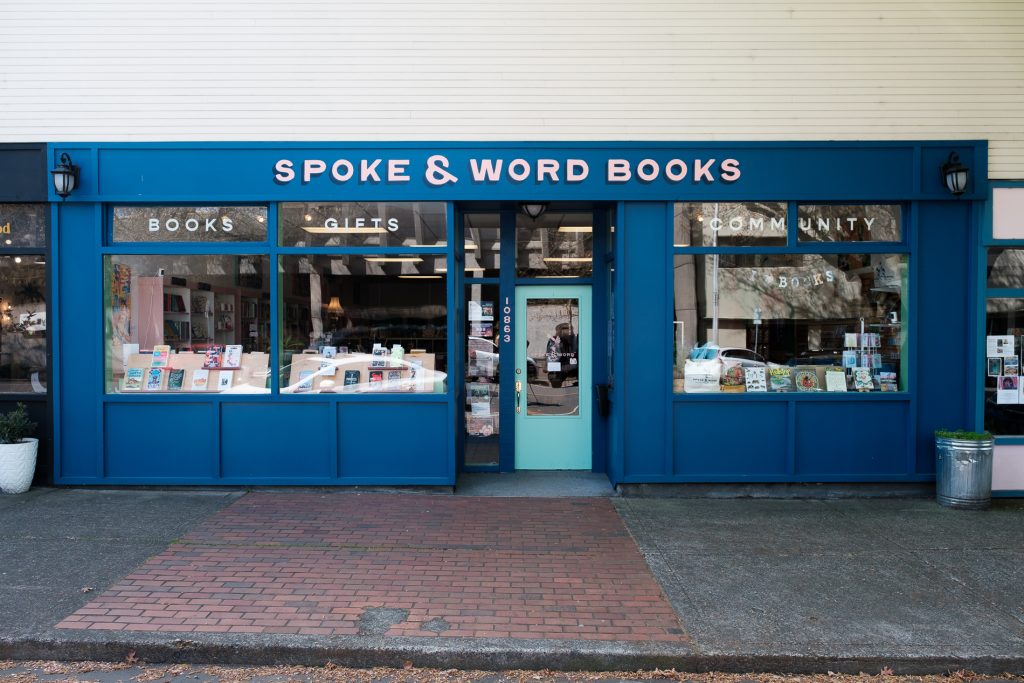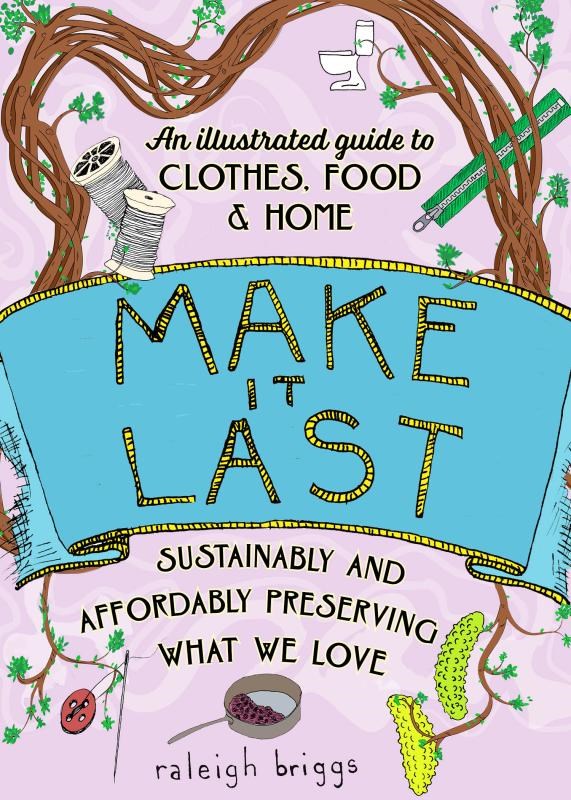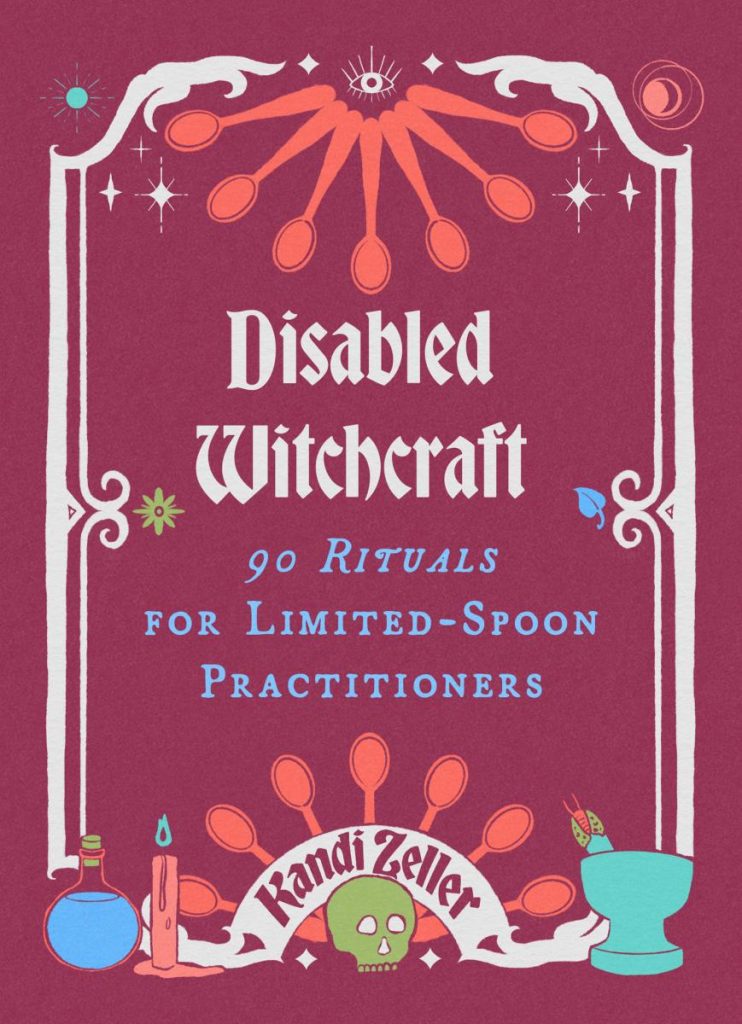An Interview with Cierra Cook, owner of Spoke & Word Books in Milwaukie, OR. | Bookstore Solidarity Project
Welcome to the next installment of the Bookstore Solidarity Project! Every month, we’ll be highlighting indie bookstore owners and booksellers across the country (and beyond!)
After a little break in July for Zine Month, we are BACK with a new store for the Project!
Meet Spoke & Word Books, one of our local indies right nearby in Milwaukie (Oregon, not Wisconsin.) We got to chat with store owner Cierra on the podcast recently about all things bookselling and community, and here’s our other interview with them about the store itself!
Your name and pronouns?
Cierra Cook (they/them)
Tell us a little bit about the store and your community.
Spoke & Word Books is a new and used community bookshop in Milwaukie, just on the outskirts of Portland, OR.
We’re in historic downtown Milwaukie, which has been a pretty quiet area for a few years. There are some exciting new businesses that’ve opened in the last year or so, including a waste free shop and a new local cafe and grocery. We’re so excited to be a part of a resurgence of activity in downtown Milwaukie. Every community deserves a local bookshop that can curate a selection that serves them specifically.
While we have a broad scope as a community bookshop, including new, used, and children’s, we have a particular focus on genre fiction and queer interest, especially romance. When I was growing up I didn’t see myself in any of the books that were available to me, and now our mission is to make sure everyone has access to books where they can see themselves represented joyfully.
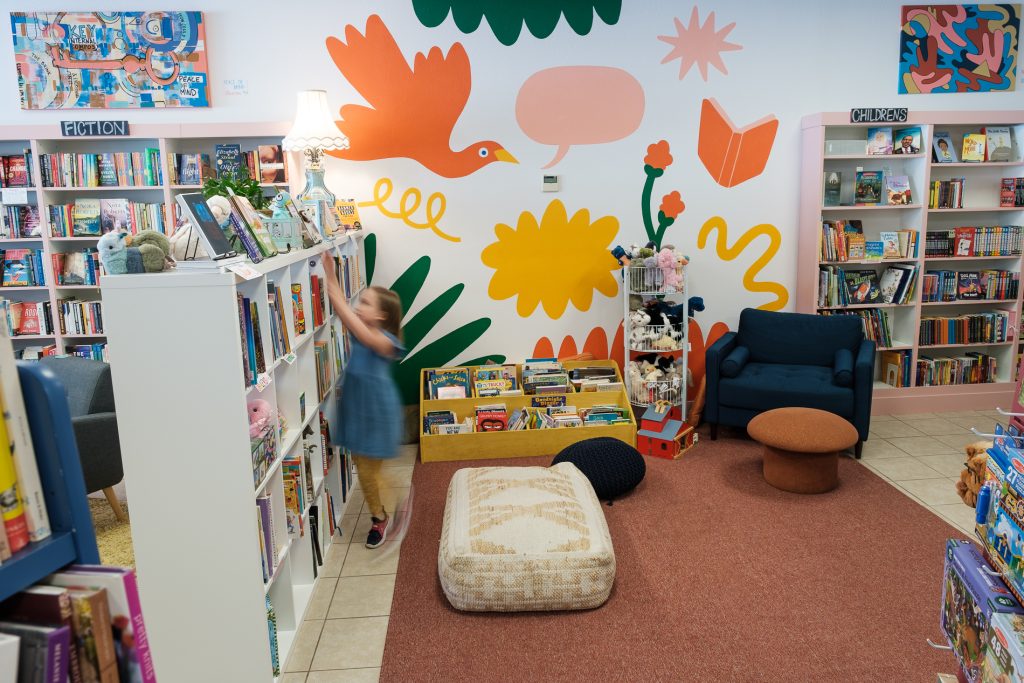
What got you into bookselling?
I started Spoke & Word Books as a pop-up shop, and it operated without a permanent location for about a year and a half before we transitioned to a brick and mortar. The idea for a bookstore came when I was doom scrolling towards the end of the pandemic. I remember feeling so lonely and discouraged, and scrolling endlessly online to try and find something good. One night I realized that I could DO SOMETHING good, since it seemed so hard for me to find a lot of positive things happening in my community at the time. I started Spoke & Word Books from my basement, selling new and used books at pop-up events and community festivals once COVID restrictions began to ease up.
It was honestly the perfect time to start a community based business like this. We had all gone through the collective trauma of COVID and the social justice awakening of 2020, and so many of us were looking for community.
A large part of what we do at the bookstore now is intentional community building. We host 2-3 events a week, including standard bookclubs and storytimes, but also oddball events like a release party for Taylor Swift’s new album, craft nights, and a 90’s Sleepover Party just for fun.
People can buy a book literally anywhere, but our goal is to create authentic connection and community that can’t be replaced by a tech company.
How did you choose your store’s name?
My husband actually came up with the name Spoke & Word Books. He refurbishes old mountain bikes into gravel bikes, and so Spoke & Word is a combination of each of our passions- biking and reading! It has another meaning as well- one of our earliest ways of explaining what kinds of books we wanted to carry was “books people talk about”. We are drawn to books that help drive discussion and community, whether that’s a book about how to get engaged in your local government (Democracy in Retrograde), or the latest spicy romance (The Pairing).
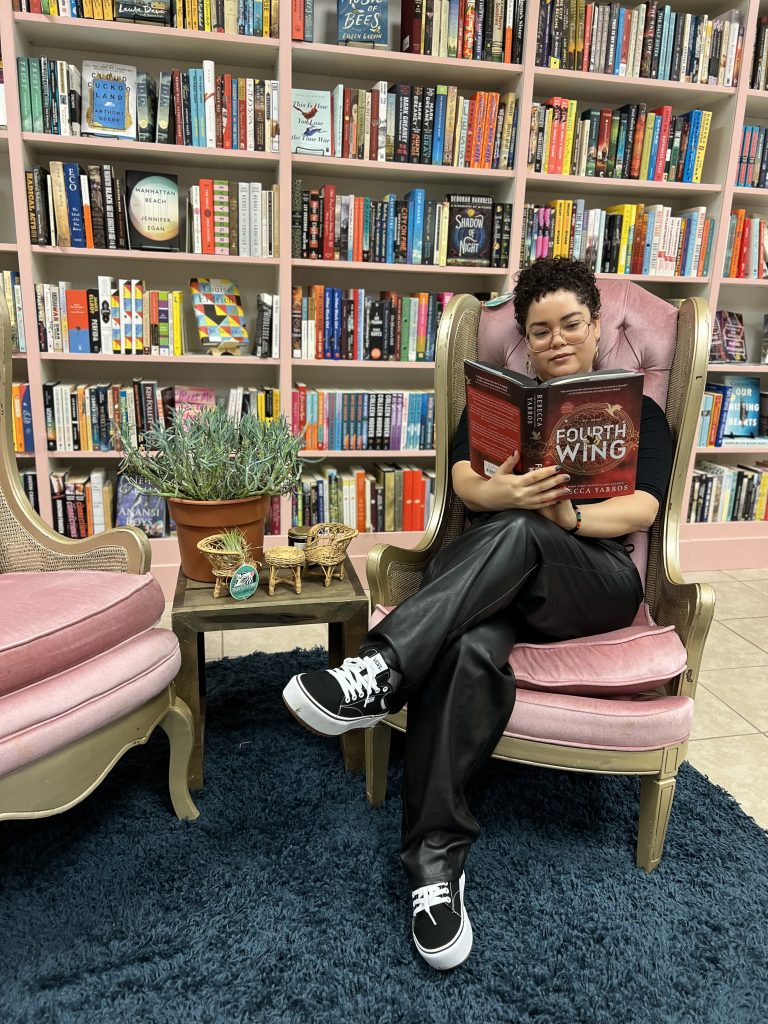
What’s something about your store that you think will surprise people?
In addition to running our bookshop, I’m also a City Councilor in my small city. I think a lot of us came out of 2020 realizing that our time is limited, and that there’s no better time than now to do the work that is important to you. In both my work at the bookshop and as City Councilor, the most important part of the job is making connections and supporting our community.
What are some of you favorite ways your community supports your store?
We have an incredible community of readers who have made our store what it is. Our customer support us by sharing reviews and recommending us to their friends, as well as donating books for our used inventory. We just launched a membership program in July that has already had a HUGE impact on our ability to stay solvent. The Milwaukie community has been so wonderfully supportive of the shop, and I’m grateful literally every day I get to come to work.
What are two books you can’t wait for people to read, or your current favorite handsells?
The Pairing by Casey McQuiston literally came out the day that I’m writing this, and it’s my favorite book of 2024, hands down. McQuiston is the absolute GOAT of romance, and The Pairing is their best work. It’s about two chaotic bisexuals rampaging through Europe on a food and wine tour, and would be my first recommendation for someone who thinks they don’t like romance (and anyone else too!). In addition to being just categorically one of the best written romances of all time (fight me), one of the main characters of The Pairing is non-binary, and their relationship to their gender and sexuality made me feel so seen. Beautifully written, deliciously queer, and just plain lovely.
I’m also really loving talking to folks about Democracy in Retrograde by Sami Sage and Emily Amick. So many of my customers have been anxious, frustrated, and scared about the presidential election this year. Democracy in Retrograde is part civic engagement primer, part self-help book, and helps people get past the anxiety of the national political landscape and learn how to engage where they can actually make a profound difference- in their local communities. We’re hosting a book club for this book, and my hope is that folks leave with a new inspiration and practical tools for getting involved in their local school board, city, or county leadership.
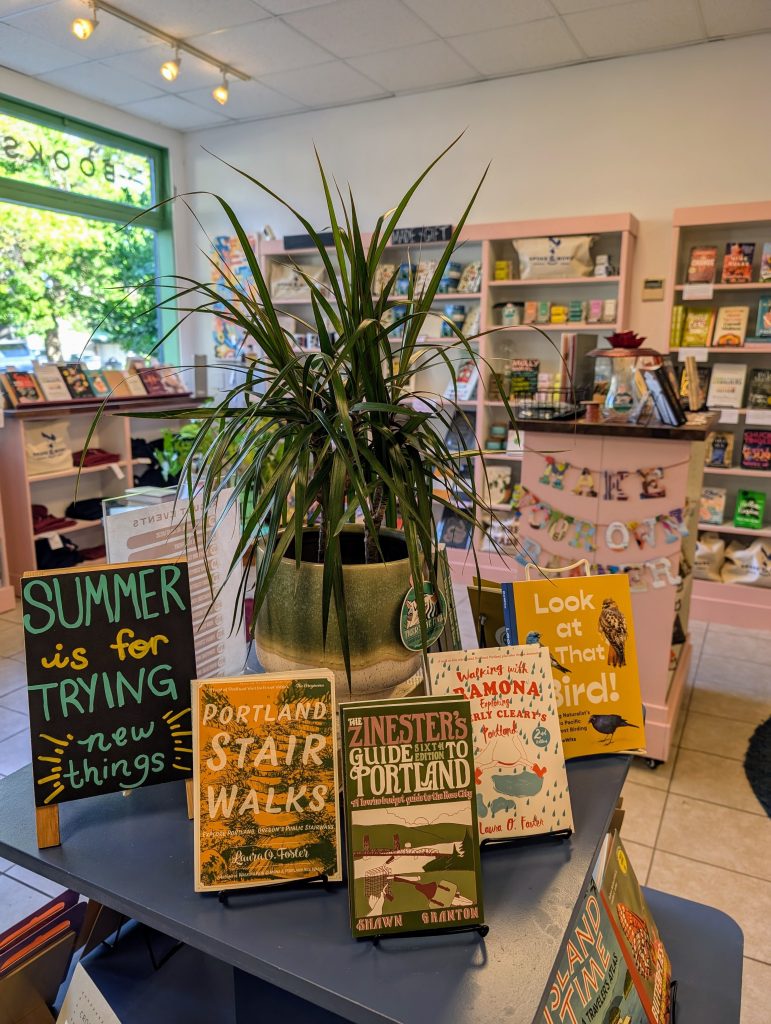
How can customers who aren’t local shop your shelves and support you?
You can support Spoke & Word Books by shopping online at www.spokeandwordbooks.com! We can ship books straight to your home through our partnership with bookshop.org!
Anything else you’d like to share?
Thank you so much for the opportunity to share! <3<3<3
Be sure to follow Spoke & Word on their Instagram, Facebook, and Tiktok, and listen to their podcast episode here!
You can read our other Bookstore Solidarity Project posts here!
And click here to get a copy of How to Protect Bookstores and Why.
